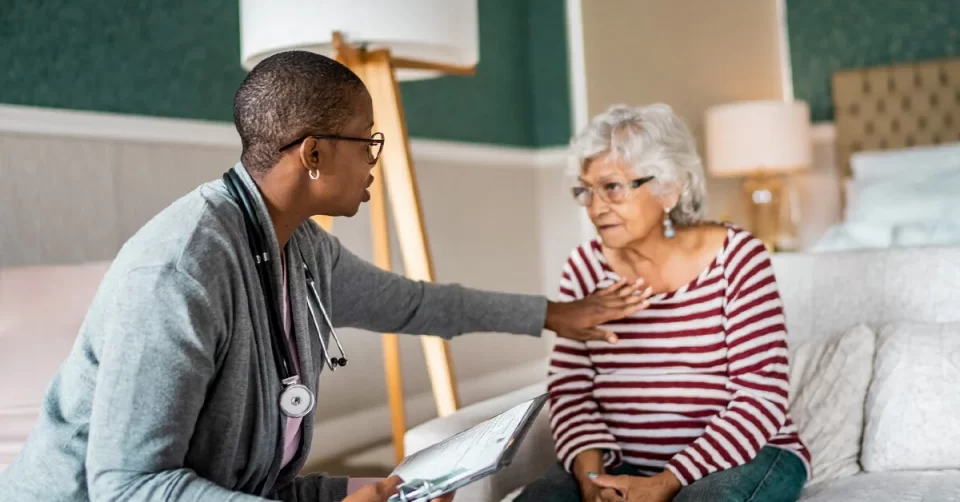When facing a potential lung cancer diagnosis, undergoing a biopsy is a crucial step. Lung cancer biopsies involve the collection of tissue samples to confirm the presence of cancer and determine its type and stage. If you or a loved one is scheduled for a lung cancer biopsy, it is natural to have questions and concerns. In this blog, we will provide an in-depth guide on what to expect from a lung cancer biopsy, including different biopsy techniques, preparation, procedure details, and post-biopsy care. We will also highlight the vital role of leading cancer hospitals in Noida and the best oncologist in Noida in delivering comprehensive care and support throughout the biopsy process.
Understanding the Significance of Lung Cancer Biopsies
A lung cancer biopsy is a pivotal diagnostic procedure that confirms the presence of cancer, identifies its type, and determines the extent of the disease. This information is vital for creating an effective treatment plan tailored to the patient’s specific needs. Leading cancer hospitals in Noida, such as the cancer hospital in Noida, boast expert oncologists, including the best oncologist in Noida, who specialize in performing lung cancer biopsies and providing comprehensive care for patients.
Various Types of Lung Cancer Biopsies
- Needle Biopsy:
A minimally invasive operation that uses a thin needle to collect tissue samples from the lungs. Needle biopsies may be guided by imaging techniques like computed tomography (CT) or ultrasound.
- Bronchoscopy:
This process involves inserting a flexible tube with a camera (bronchoscope) through the nose or mouth to visualize the airways and collect lung tissue samples using various techniques, such as bronchial brushing or bronchial biopsy.
- Surgical Biopsy:
In certain cases, a surgical biopsy may be necessary. It involves removing a larger tissue sample through surgical procedures like video-assisted thoracoscopic surgery (VATS) or thoracotomy.
Preparation for a Lung Cancer Biopsy
Before the biopsy, your healthcare team will provide specific instructions, which may include:
- Medication Review:
Inform your healthcare team about any medications, allergies, or previous adverse reactions to anesthesia.
- Fasting:
You may be required to fast for a specific period before the biopsy, especially if sedation or anesthesia is involved.
- Imaging Tests:
You may undergo imaging tests such as CT scans or X-rays to identify the precise location for the biopsy.
- Blood Tests:
Blood tests may be conducted to assess your overall health and ensure safe administration of anesthesia, if required.
The Lung Cancer Biopsy Procedure
The lung cancer biopsy procedure varies depending on the chosen biopsy technique. Here is a general overview:
- Needle Biopsy:
After administering a local anesthetic to numb the area, a thin needle is inserted through the chest wall to collect tissue samples. Imaging techniques guide the needle’s placement. The samples collected are sent to the laboratory for analysis.
- Bronchoscopy:
Local anesthesia is used to numb the nose or throat. The bronchoscope is then inserted to visualize the airways and collect lung tissue samples using various techniques. The samples are subsequently sent for laboratory analysis.
- Surgical Biopsy:
Surgical biopsies are performed under general anesthesia. Small incisions are made in the chest, and a surgical instrument is used to remove a tissue sample. The incisions are closed with sutures or staples.
Post-Biopsy Care and Result
Waiting; you could feel a little uncomfortable following the biopsy, but pain medicine might help. Your medical team will watch closely for any problems or infection symptoms. Your healthcare team will let you know the laboratory examination results of the tissue samples they have gathered.
Conclusion
A lung cancer biopsy is a critical diagnostic procedure that confirms the presence of lung cancer and provides valuable information for tailored treatment plans. By understanding the different biopsy techniques, preparing appropriately, and following post-biopsy care instructions, you can ensure a smoother biopsy experience. Leading cancer hospitals in Noida and the best oncologist in Noida offer comprehensive care and support throughout the biopsy process to ensure accurate diagnosis and personalized treatment plans.
FAQs:
Q1: Is a lung cancer biopsy painful?
A1: A lung cancer biopsy involves local anesthesia to minimize discomfort. While you may experience some pressure or mild discomfort during the procedure, it is generally well-tolerated.
Q2: How long does it take to receive biopsy results?
A2: Biopsy result turnaround time varies, depending on the specific procedure and laboratory processing time. Typically, results are available within a few days to a week.
Q3: What are the risks associated with a lung cancer biopsy?
A3: Risks of a lung cancer biopsy may include bleeding, infection, collapsed lung (pneumothorax), or damage to surrounding structures. However, these risks are minimized through the expertise of the healthcare team performing the biopsy.
Q4: How can the cancer hospital in Noida support lung cancer diagnosis and treatment?
A4: Cancer hospitals in Noida provide advanced diagnostic tools and a team of expert oncologists specializing in lung cancer diagnosis and treatment. They perform various biopsy techniques and offer comprehensive care, including accurate diagnosis and personalized treatment plans.

